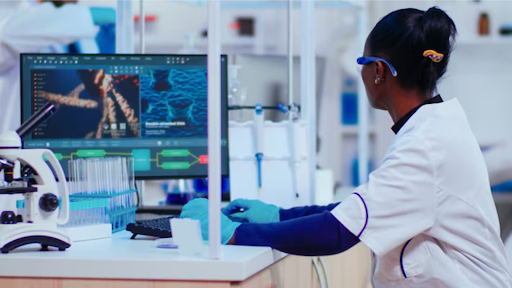Data is the backbone of any clinical trial, and accuracy is what makes it reliable. Without precise numbers, outcomes may be questioned, and regulatory approvals could be delayed.
So, what helps ensure that every data point is captured, stored, and tracked correctly?
This is where clinical trial software plays a crucial role. By automating tasks, reducing errors, and keeping every record organized, such tools transform complex trials into structured and transparent processes.
But why does accuracy matter so much, and what role does technology really play in protecting it?
Let’s explore the real reasons clinical research relies so heavily on digital solutions.
1. Reducing Human Errors
One of the biggest challenges in clinical research is avoiding mistakes caused by manual data entry. Typos, misplaced files, or missed updates can change the entire outcome of a study. Advanced platforms cut down on such risks by:
- Automating repetitive tasks
- Flagging inconsistencies in real time
- Storing every entry with a time stamp
This level of precision helps researchers trust their own results, which ultimately builds confidence in the study itself.
2. Centralized Data Management
Trials often run across multiple sites, involving diverse teams. How can everyone access the same information without confusion? That’s where centralized systems come in. Instead of scattered spreadsheets, one digital platform ensures that every team member looks at the same set of data. This consistency reduces delays, avoids duplication, and keeps all records aligned across locations.
3. Real-Time Tracking of Supplies
Data accuracy is not limited to participant information—it extends to managing trial materials as well. Here’s where clinical trial supply management software becomes valuable. It tracks everything from drug kits to storage conditions, making sure supplies are available when needed and logged without error. This ensures that no misreporting occurs due to lost or mishandled products.
4. Compliance Made Easier
Regulatory bodies demand strict documentation to approve a trial’s outcome. Even a small error can raise red flags. With digital systems in place, every action is recorded automatically. Audit trails, secure storage, and built-in compliance checks make it easier for organizations to meet regulations. This not only improves accuracy but also builds trust with oversight agencies.
5. Better Communication Among Teams
In trials, different departments—from data managers to supply teams—must work hand in hand. Miscommunication often leads to incorrect data entries or duplicate work. Software solutions solve this by offering shared dashboards and real-time updates. Everyone sees the same information, reducing confusion and maintaining accuracy throughout the project.
6. Enhanced Patient Safety
Accurate data isn’t just about meeting regulations—it directly affects patient well-being. Imagine if incorrect dosage information were recorded or missed. Automated systems prevent such risks by tracking patient records, dosage schedules, and medical histories precisely. This ensures that participants receive safe treatment while researchers gain dependable results.
7. Faster, Smarter Decisions
Accurate data helps decision-makers respond quickly to unexpected issues. With real-time dashboards, researchers can spot patterns, identify risks, and adjust study methods faster than manual systems would allow. This proactive approach improves both the safety of the trial and the reliability of its results.
Why Accuracy Cannot Be Compromised
Every stage of a trial—whether data entry, supply tracking, or patient monitoring—depends on reliability. A single mistake may not only waste years of research but also compromise patient trust. That’s why digital tools are no longer optional; they are essential.
By combining features such as automation, secure record-keeping, and real-time monitoring, modern platforms make clinical research more transparent and dependable. The result? Safer studies, quicker outcomes, and decisions backed by confidence.
Final Takeaway
Accuracy in clinical research is more than a technical requirement—it’s a moral responsibility. Researchers owe it to patients, regulators, and the medical community to present results that reflect reality with zero doubt. Clinical trial software helps achieve this by bringing consistency, efficiency, and transparency to every step. And when combined with solutions like clinical trial supply management software, it ensures that both data and logistics remain flawless.
So, if the question is why technology is crucial for accuracy, the answer is clear: it minimizes errors, protects participants, and strengthens trust in the outcomes.

